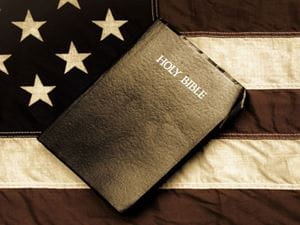
In recent years much has been written about the rise of the “nones”—people who check the box for “none” on surveys of religious affiliation. A 2015 Pew Research Center poll reported that 34 to 36 percent of millennials (those born after 1980) are nones, and a 2013 Harris Poll of 2,250 American adults found that 23 percent of all Americans have forsaken religion altogether.
Pew Research added that this was a dramatic increase from 2007 when only 16 percent of Americans said they were affiliated with no religion. In raw numbers, this translates to an increase from 36.6 million to 55.8 million nones. Though lagging far behind the 71 percent of Americans who identified as Christian in the Pew poll, they are still are a significant amount of people. They are far larger than Jews (4.7 million), Muslims (2.2 million) and Buddhists (1.7 million) combined (8.6 million) and are comparable to politically powerful Christian sects such as Evangelical (25.4 percent) and Catholic (20.8 percent).
While the data that show people in the United States are walking away from organized religion in unprecedented numbers are overwhelmingly clear, they don't answer the more nagging question: Why?
Here are a few reasons that contribute to the decline of religion.
Simply Don't Have Any Belief
The vast majority of religious “nones” (78 percent) say they were raised as a member of a particular religion before shedding their religious identity in adulthood. About half of those indicate that a lack of belief led them to move away from religion. This includes many respondents who mention “science” as the reason they do not believe in religious teachings. Others reference “common sense,” “logic” or a “lack of evidence” – or simply say they do not believe in God.
Furthermore, one in five expressed that they were not found of organizational religion in general. This share includes some who do not like the hierarchical nature of religious groups, several people who think religion is too much like a business and others who mention clergy sexual abuse scandals as reasons for their stance.
Political Reasons
There’s some evidence to support the political alienation theory, which believes the reason millennials are leaving is somehow related to politics. People who vote or lean Democratic are more likely to be “nones.” Young adults, in particular, have turned away from organized religion because they perceive it as deeply entangled with conservative politics and do not want to have any association with it. Due to this, many young Americans came to view religion as judgmental, homophobic, hypocritical, and too political.
If the political alienation theory fully explained what’s going on in American religion, though, millennials would be leaving conservative religions in favor of ones that are liberal and LGBT-affirming. Plenty of churches like that exist, where those on the political left would feel welcome and comfortable. However that is not the case. With few exceptions the unaffiliated say they are not looking for a religion that would be right for them. Overwhelmingly, they think that religious organizations are too concerned with money and power, too focused on rules and too involved in politics.
Growth of Wealth and Secularization
Another theory blames the growth of secularization and its links to wealth as a reason for disengagement from religion. According to the Pew report, past surveys in other countries show "an association between these measures of religiosity and a country's national wealth." Countries with a high gross domestic product tended to be less religious than countries with a low GDP. The United States, with both a high GDP and high levels of religious commitment, was always the exception to the rule up until now. Some suggest that the rise of the "nones" is a sign of advancing secularization.
Americans Are Living More Separate Lives
In general, American’s are moving away from all forms of communal activities, such as community groups and service clubs in favor of living more separate lives. Many believe this is merely now extending to churches. This would make sense, as those who are religiously active are more likely, according to surveys, to be engaged in community activities and groups. The theory also seems to agree with past studies that have found "religiously unaffiliated Americans are less inclined than Americans as a whole to feel that it is very important to belong to 'a community of people who share your values and beliefs.'"
Change in Family Structure
One of the biggest demographic trends of our time is that millennials are delaying marriage or not getting married at all. And since there’s a strong correlation between being married and being involved in religion, the fact that fewer Americans are getting married is worrisome news to churches. Furthermore, the number of children a family has is related to the couple’s religious involvement. Couples without kids are a bit less likely to be religious. The fact that fertility is on the decline and that millennials are not having children as quickly could be contributing factors.
Being a “None” is Becoming More Socially Accepted
This might seem confusing, that the growth of "nones" is because the "nones" are growing. Some nonbelievers might have stayed in organized religion in previous generations just because it was socially expected, and there were consequences for not joining the religious crowd. The numeric growth of the nones has removed some of those barriers, so that other closeted nones feel more comfortable leaving religion too. There is an infrastructure and support system for them.
There are tons of reasons why Americans are moving away from religion, and they all work together as contributing factors for the change. No one answer is able to dictate why this trend has occurred. However this helps give us some insight on ways the church can begin to change to help invite people back in their doors.

